I was last on the African continent in 2018 and was due to go back in 2020, but then the pandemic struck. As an avid lover of the African bush I can’t wait to get back there soon, but meanwhile I like to follow the fortunes of safari companies that I’ve travelled with, or would like to travel with, and one such company is andBeyond.
andBeyond designs personalised, upmarket tours in 15 countries in Africa, five in Asia and four in South America, offering its customers the opportunity to see the world in a variety of natural environments. It owns and operates 29 top-notch lodges and camps in bush, wilderness and island destinations in Africa and South America, and claims it has a positive impact on more than 3.6 million hectares of wildlife land and 3,000 kilometres of coastline.
Established in 1991, andBeyond strives – without hype – to leave the world a better place through care of the land, wildlife and people, and the delivery of exceptional guest experiences. It has established a connection with some of the world’s last remaining unspoiled natural places and the communities that surround them.
andBeyond’s Grumeti Serengeti River Lodge was reopened last month after a comprehensive rebuild. Situated in the Serengeti’s western corridor, it offers guests a comfortable way to explore this scenic but remote region and its rich wildlife.
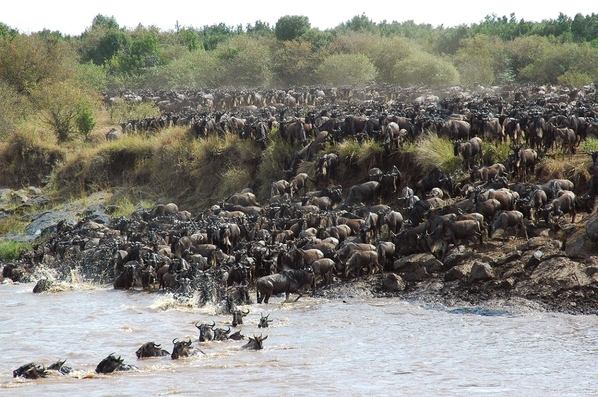
While the Serengeti is famous for the great wildebeest migration, this secluded area is also home to large resident lion prides, elephant, an annual topi (antelope) migration and the black-and-white colobus monkey, found nowhere else in the Serengeti.
The lodge’s new look has redefined the traditional concept in a manner that is luxurious and contemporary while retaining the rustic and tactile nature of the original camp.
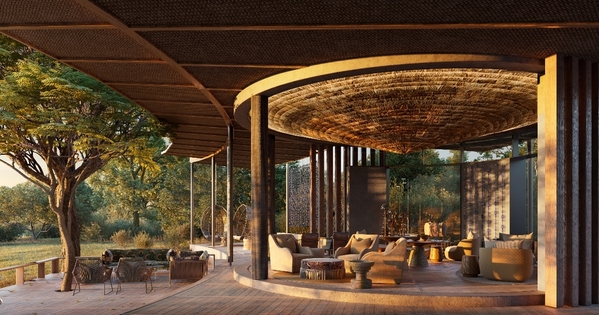
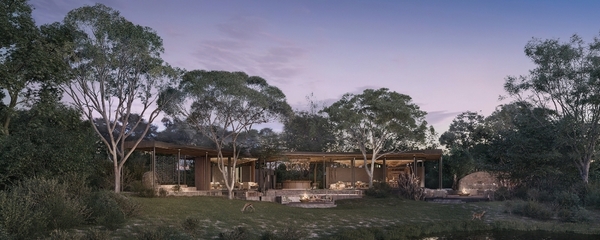
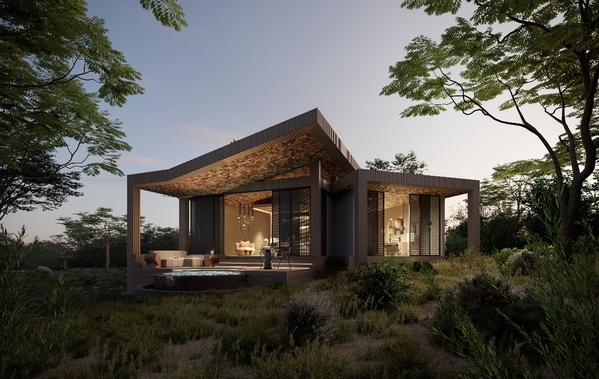
Drawing inspiration from the natural setting, the sweeping arc of the guest areas follows the contours of the nearby Grumeti River, creating a natural flow of sitting and dining areas. More than twice the size of the originals, guest suites feature raised ceilings and taller doors, while canvas, banana fibre and hardwood cladding add a layer of richness. Guest suites now feature deep baths and indoor showers, as well as outdoor decks with private plunge pools.
The interior was designed by South African lodge design specialist, Fox Browne Creative, with architectural design by Jack Alexander, a masters graduate from the University of Nebraska and a regular guest critic at the University of Virginia School of Architecture.
The redesign of the lodge, shaped around the footprint of the original buildings, presented the designers with an ideal opportunity to focus on sustainability.
Instead of heavy concrete foundations or slabs, lightweight steel clad in natural canvas, and sustainably sourced local hardwood were used. This has translated into a feeling of space and flow, with taller doors and unglazed openings providing an abundance of natural light and connection with the natural surrounds.
A 130-kWh solar power system will help the lodge meet its target of running on 80 per cent renewable energy. All back-of-house roof space (such as staff accommodation) has been used for solar panels.
In addition to the use of solar power, energy-saving hot water systems have replaced the original infrastructure, and LED low-energy fittings have been used throughout. Waste water from the laundry is being recycled and used for activities such as washing safari vehicles. In addition, rainwater tanks with a 10,000-litre capacity will support the filling of guest-suite plunge pools and washing the wooden decks.
The lodge’s borehole has a special meter installed to monitor underground water level and ensure that the borehole’s capacity is not exceeded.
This innovative measure will also be used by the park authorities to create a water-conservation reference point which will inform and guide future lodge development.
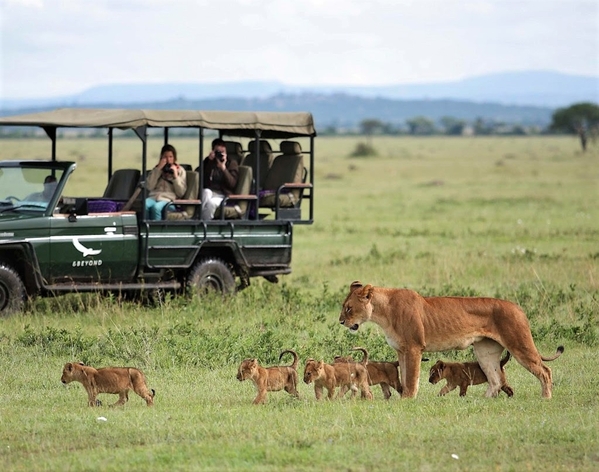
It is traditional for safari companies to offer morning and afternoon game-viewing drives, but at Grumeti you can also take a hot air balloon flight or spend the afternoon exploring the vast landscapes of the Serengeti on a nature walk instead.
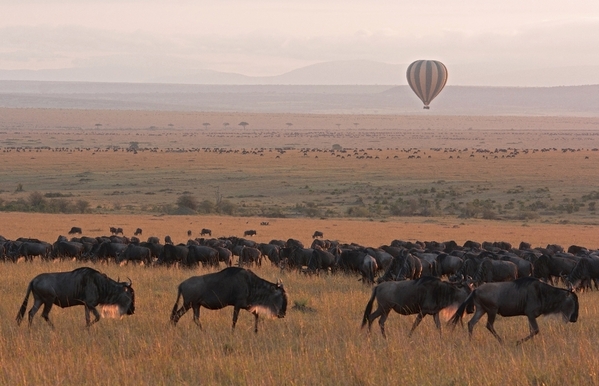
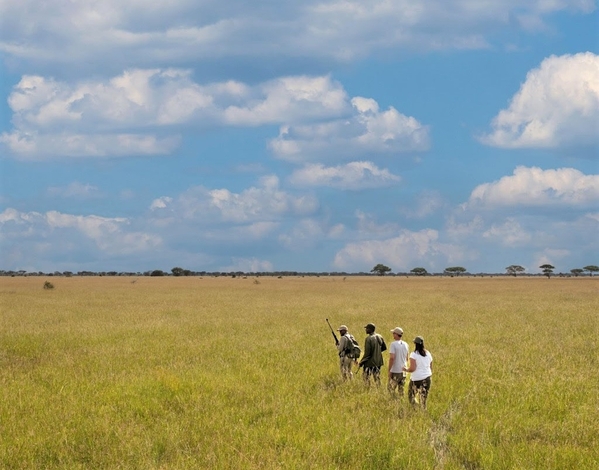
In addition to the wildlife viewing adventures, guests can also choose to go on a cultural visit to the nearby Lukungu community or even drive to the shores of Lake Victoria, Africa’s largest lake, where they will get a firsthand glimpse of the traditional communities for whom fishing this vast expanse of water is a way of life.

Travellers who prefer to spend more time enjoying the comfort of the lodge and its spectacular setting overlooking an offshoot of the Grumeti River can take in the views from floor-to-ceiling windows that look out onto the river.
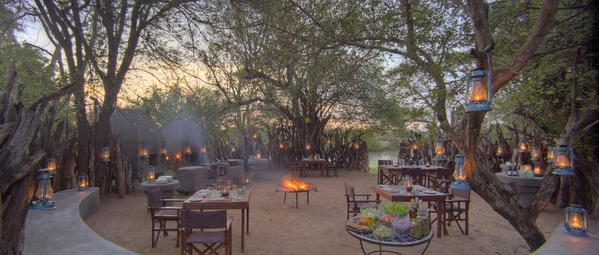
The lodge’s extended guest areas are also designed to provide more spaces for travellers to either interact with each other or enjoy the tranquillity of the lodge, as their mood dictates. A brand-new cocktail bar is the ideal place for those must-have sundowners.
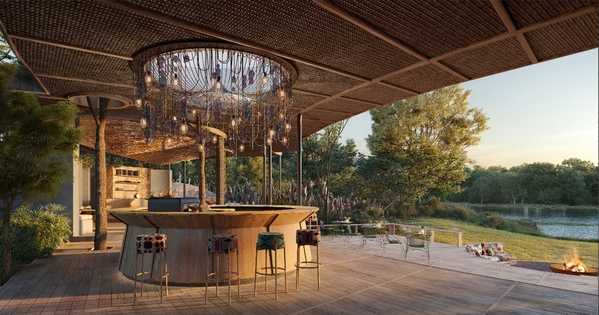
Seasonally designed menus will feature locally sourced ingredients and dinner options will include the traditional boma, the dining room, in-room dining and bush dinners beneath the stars. By the way, the word ‘’boma’’ (also known as a kraal) originally referred to a wooden enclosure used to contain livestock and fortify family homesteads, but safari lodges around the continent have adopted the boma, using the stylised wooden structures to enclose outdoor dining areas and create a warm, inviting space where guests can enjoy dining under the African night sky.
But the wildlife is what makes it all worthwhile. The following images feature some of my own animal spotting on the continent.
Some may deride this simple and uncomplicated view of Africa, and scoff at the notion of luxury in the bush. But many responsible safari companies and lodge operators are doing a sterling job preserving the environment rather than destroying it, protecting wildlife instead of slaughtering it and engaging with local communities rather than riding roughshod over them. Some have even launched initiatives like anti-poaching patrols and relocation of endangered species. Responsible and thoughtful tourists are part of the mix.
Check out andBeyond here if you’re interested.
Lodge photos: andBeyond
Wildlife photos © Judy & Barry Barford

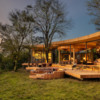


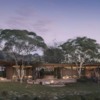

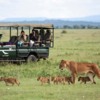

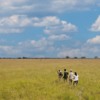
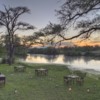


Comments (5)